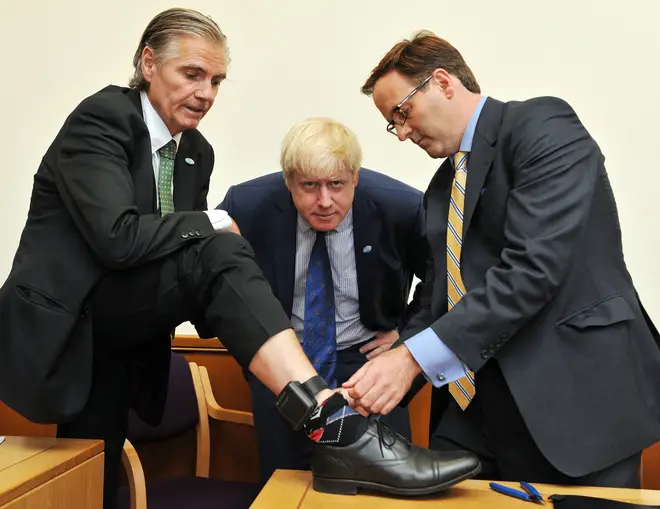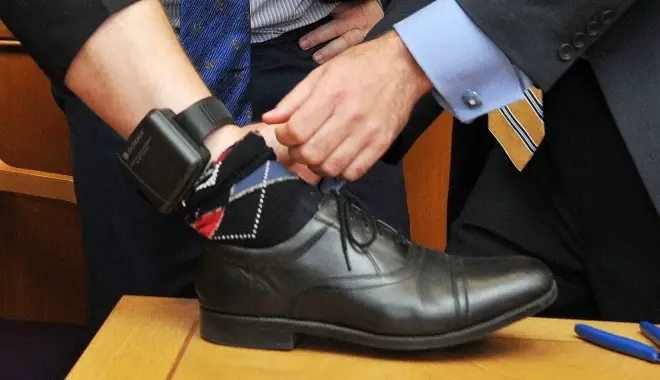
Ben Kentish 10pm - 1am
19 May 2020, 08:47

Alcohol-fuelled criminals could be forced to wear 'sobriety ankle tags' to monitor their sweat, under new laws coming into force.
Offenders in England and Wales could also be banned from drinking and would have to wear the electronic tags for up to 120 days when the national rollout goes ahead in the winter.
Under the legislation, the courts will have the power to issue compulsory "alcohol abstinence orders" which, if broken, could lead to other punishments such as fines, extensions of the order, or imprisonment.
The sobriety tags will be able to monitor an individual's sweat every 30 minutes to establish whether they have consumed alcohol.
It is said to be able to distinguish between products like hand sanitiser and alcohol-based drinks.
Roughly two in five acts of violent crime are committed under the influence of alcohol, while the social cost of the substance is estimated to be £21.5 billion per year, according to the Ministry of Justice (MoJ).

Trials in Humberside, Lincolnshire, North Yorkshire and London showed that offenders were completely alcohol-free on 97 per cent of the days monitored, the MoJ said.
The individuals also reported this having a "positive impact on their lives, wellbeing and behaviour."
Crime, policing and justice minister Kit Malthouse said the tags would not just be a punishment, but would also help criminals "turn their lives around."
He added: "Alcohol-fuelled crime blights communities and puts an unnecessary strain on our frontline services.
"While prison will always be the right place for many criminals, tough community sentences like this can help cut reoffending and protect the public."
The MoJ expects to fit around 2,300 tags to offenders per year.

Which alcohol gives you the worst hangover and why?
Keith Hunter, Police and Crime Commissioner (PCC) for Humberside, welcomed the new measure which "will help reduce the number of victims of alcohol-related crime."
He said: "During the trial in our area they provided rehabilitation agencies with a real opportunity to work with the individual and get them to recognise and change their behaviour.
“Undoubtedly their use will help reduce the number of victims of alcohol-related crime, many in domestic situations, and aid the rehabilitation of offenders as they become a standard feature of the Criminal Justice System."
An offender, who wore one of the tags in the Humberside, Lincolnshire and North Yorkshire pilot scheme, said: “Since I had the tag removed I feel 100 per cent in control of my drinking.
"I was worried to begin with that when I had the tag taken off I might go back to drinking again but the process gave me a better understanding of alcohol. I also didn’t want to go back to court.
“I no longer need a drink to manage my emotions which is down to the tag and my probation officer – I’m much happier with my life now and pleased that more people can benefit from my experience of wearing the tags.”
People with certain medical conditions or who are alcohol-dependent will not be forced to wear the tags.